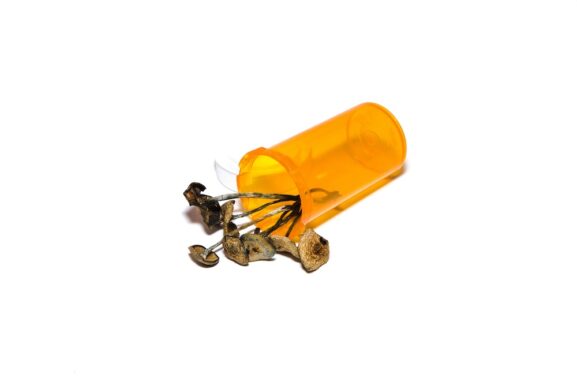9 Easy Ways to Boost Your Vagus Nerve
Stimulating the vagus nerve is more than a wellness trend; it’s a science-supported practice with significant health impacts. With a vagus nerve on each side of our bodies running from the brain through vital areas, its influence on our wellbeing is substantial.
From FDA-approved devices treating epilepsy and depression to aiding stroke recovery, the potential of vagus nerve stimulation (VNS) is immense. We’ve seen it alter brain activity, control seizures, improve mood, and assist in post-stroke function recovery. Let’s explore how to tap into this incredible internal resource.
9 Ways to Stimulate Your Vagus Nerve
| Method | Description | Benefits |
| Deep and Slow Breathing | Breathing deeply and slowly, focusing on elongating exhales. | Reduces stress, lowers heart rate. |
| Cold Exposure | Brief exposure to cold, like cold showers or face immersion in cold water. | Increases vagus nerve activation, reduces fight-or-flight response. |
| Singing, Humming, Chanting | Engaging in activities that involve vocalization. | Stimulates the vocal cords which are connected to the vagus nerve. |
| Gargling | Vigorous gargling with water. | Activates the muscles in the back of the throat, stimulating the vagus nerve. |
| Meditation and Yoga | Practices that involve mindfulness and body awareness. | Enhances vagal tone, promotes relaxation. |
| Mild Exercise | Gentle physical activities like walking or light cycling. | Improves vagal tone, enhances mood. |
| Massage or Acupressure | Gentle massage, especially on the feet, neck, or around the ears. | Stimulates nerve endings linked to the vagus nerve. |
| Healthy Diet | Consuming foods rich in probiotics and omega-3 fatty acids. | Promotes gut health, which is linked to vagus nerve health. |
| Laughter | Genuine bouts of laughter. | Activates the diaphragm and stimulates the vagus nerve. |
Methods to Stimulate the Vagus Nerve
Stimulating the vagus nerve offers various health benefits, especially for mental health. Simple yet effective methods intrigue me for activating this cranial powerhouse.
Vocal exercises like singing, humming, or chanting naturally stimulate the vagus nerve. When I engage in these activities, I enjoy music or meditation and stimulate my throat muscles, impacting my vagus nerve. These exercises improve heart rate variability (HRV) and enhance vagal tone, crucial for a calm nervous system.
I find acute cold exposure surprisingly refreshing. Exposing my neck to cold or taking cold showers significantly improves my HRV and vagal function. Occasional cold bursts lower my “fight or flight” responses and increase parasympathetic activity. This method boosts vagal nerve stimulation, supporting mental health.
Research shows non-invasive vagus nerve stimulation (nVNS) is highly practical. Pilot studies, including one at Emory, show electronic neck stimulation near the vagus nerve decreases stress inflammation and reduces PTSD symptoms. This offers hope for using vagus nerve stimulation in mental health, where stress and inflammation compound issues.
Touch power also stimulates the vagus nerve. Foot massages or gentle touch provide another way to boost mental health through vagal activation. Whether self-administered or professional, this soothing method is enjoyable and relaxing.
The vagus nerve is crucial for managing physical and mental health. Incorporating these techniques into my routine influences my body’s responses, potentially improving my life quality.
New: Interested in Being Part of a Psychedelics-Focused Clinical Trial? Sign Up Here
Ready to explore a new horizon in mental health? Try out the beta version of HealingChat, HealingMaps AI chatbot that takes all our vetted content, clinics and retreats to answer all your questions in a safe environment. Try the beta version now!
What is the Vagus Nerve?
Delving into the human body’s complexities, we find the vagus nerve’s significant role in physiological and mental health. As one of the 12 cranial nerves, it sends sensory information to the brain and manages involuntary body processes. The vagus nerve uniquely reaches from the neck to the chest and abdomen, affecting digestion, heart rate, and breathing.
The vagus nerve’s role in mental health is burgeoning in interest. We’ve learned that vagus nerve stimulation (VNS) might improve mental health conditions. The fact that a physical nerve influences mental well-being is remarkable, showing the body-mind connection.
Vagus nerve stimulation for mental health is not far-fetched. Research shows its stimulation benefits those with treatment-resistant depression. Accessible methods like deep breathing and physical activity can stimulate this nerve, potentially offering mental health benefits.
The vagus nerve acts as a two-way communication pathway with the brain, extending the effects of its stimulation. Vagus nerve stimulation alters brain activity, opening possibilities for mental health interventions.
In our exploration, understanding the vagus nerve’s anatomical and physiological relevance is critical. Its impact on our overall health is significant. Advancing knowledge and technology could lead to innovative treatments for physical and mental well-being.
RELATED: 40 Shadow Work Prompts to Help Heal Your Inner Demons
Why is the Vagus Nerve Important?
Exploring the vagus nerve for mental health, we must understand its role in the autonomic nervous system (ANS). The ANS regulates involuntary activities like heart rate, respiration, and digestion. The vagus nerve, with 20% efferent and 80% afferent fibers, influences mental well-being beyond basic functions.
The vagus nerve’s efferent fibers, part of the parasympathetic system, send calming signals to body organs. Its afferent fibers relay sensory information to the brain, ensuring appropriate body responses.
Our interest in the vagus nerve’s impact on mental health grows with findings linking it to the body’s inflammatory response. Maintaining vagal tone helps modulate stress reactions and reduce inflammation, affecting both physical and mental health.
The gut-brain axis, involving the vagus nerve, is crucial for mental health. Signals from gut microbiota travel to the brain via the vagus, influencing gastrointestinal and stress-related conditions.
Maintaining a healthy vagus nerve is vital for our mental equilibrium. From breath control to heart rate management in stress, the vagus nerve is a key tool for a resilient mental state. Understanding this connection opens potential for overall health improvement and new mental health treatments.
Benefits of Stimulating the Vagus Nerve
As we dive the benefits of stimulating the vagus nerve, we see it’s more than a health trend; it enhances well-being. The vagus nerve, part of the autonomic nervous system, is vital for mental health. Discovering its potential for physical and emotional improvement is exciting.
In epilepsy management, vagus nerve stimulation (VNS) offers hope. It reduces seizure frequency and shortens recovery time, providing invaluable relief.
Beyond epilepsy, VNS benefits mental health. Our research shows people with epilepsy undergoing VNS also report mood and life quality improvements, suggesting a deep vagus nerve-emotional state link.
Vagus nerve research for mental health shows promising depression treatments. It’s not a quick fix, as effects build over time, offering symptom relief after months of therapy.
The vagus nerve also battles inflammation. A 2018 review shows strong vagal activity correlates with better inflammation management, potentially reducing diseases like rheumatoid arthritis and inflammatory bowel disease risks.
| Benefit | Implication |
|---|---|
| Seizure Frequency Reduction | Less frequent seizures, improved quality of life |
| Shortened Seizure Recovery | Quicker return to normalcy post-seizure |
| Mood and Quality of Life | Potential improvements in mental well-being |
| Inflammation Management | Reduced risk of inflammatory diseases |
It’s clear that VNS is not a universal remedy, nor should it replace traditional treatments. Yet, for many, it could be a vital component of a multifaceted approach to health, particularly when paired with rehabilitation. There’s also some evidence suggesting that VNS can aid in improving function after stroke, tackling issues related to cognition and swallowing.
Which Ones Will You Try?
We’ve explored various ways to activate the vagus nerve, each with its own unique contribution to our health and well-being. Whether it’s through simple vocal exercises or embracing the chill of a cold shower, the potential benefits are clear. For those needing a more advanced approach, electrical stimulation devices offer promising results, especially when overseen by medical professionals. Remember, these techniques are not just about immediate effects; they’re about nurturing long-term resilience against stress and disease. So here’s to taking charge of our nervous system and unlocking the healing power within!



